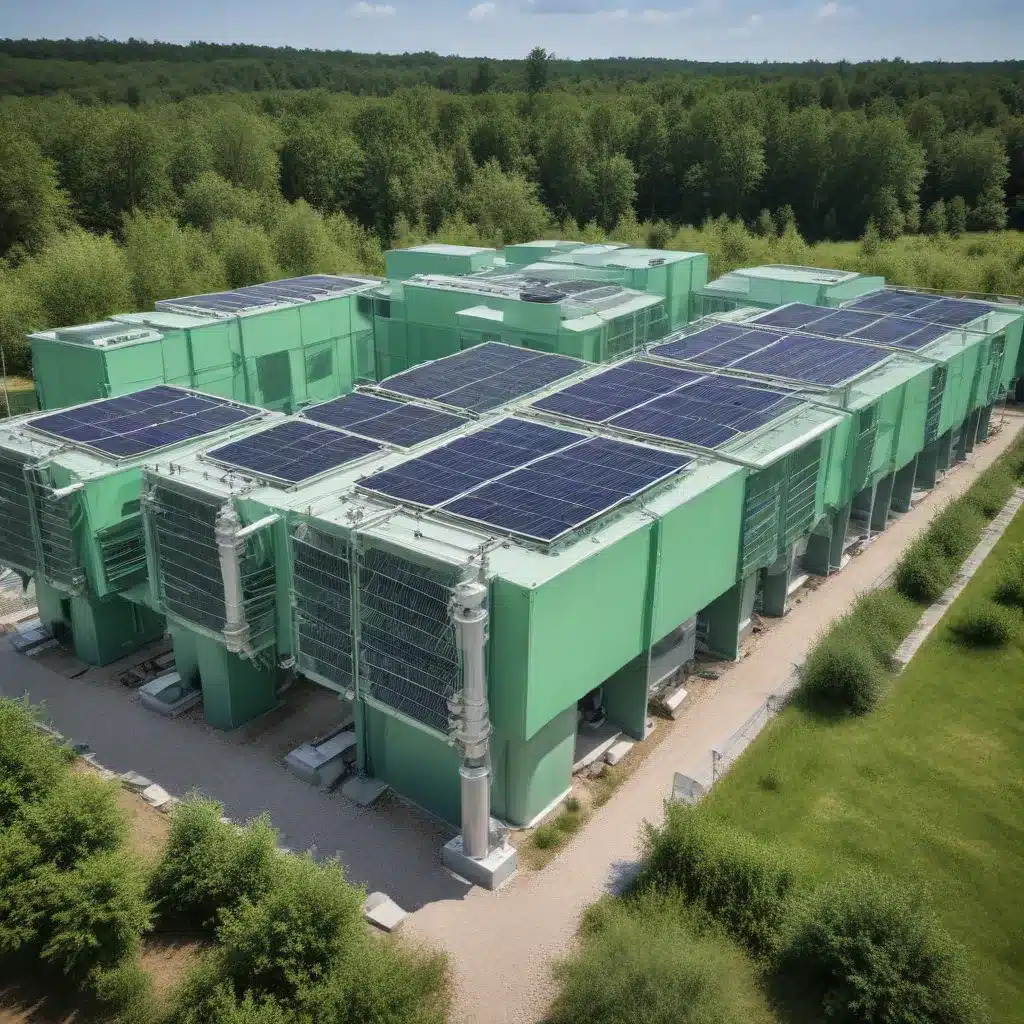
Enhancing Sustainability: How Air-Cooled Heat Exchangers are Driving the Green Energy Revolution
The Vital Role of Air-Cooled Heat Exchangers in Powering the Sustainable Future
Air-cooled heat exchangers are emerging as a critical component in the global shift towards renewable energy and sustainable industrial practices. As the world grapples with the pressing need to reduce greenhouse gas emissions and address the escalating climate crisis, these versatile heat transfer devices are proving instrumental in enabling the transition to greener, more efficient energy systems.
Optimizing Efficiency and Minimizing Environmental Impact
Air-cooled heat exchangers offer a myriad of advantages that make them an increasingly compelling choice for a wide range of applications, from power generation and industrial processes to HVAC systems and data centers. Unlike their water-cooled counterparts, these heat exchangers utilize ambient air as the cooling medium, eliminating the need for water consumption and the associated challenges of water treatment and disposal. This water-free operation significantly reduces the environmental footprint and resource demands of various industries, aligning perfectly with the global push for sustainability.
Moreover, advancements in air-cooled heat exchanger design and materials have resulted in improved thermal efficiency, reduced energy consumption, and lower operating costs. The use of innovative fin geometries, advanced coatings, and optimized airflow patterns has enhanced heat transfer capabilities, allowing for more effective cooling with minimal energy input. This translates into substantial energy savings and a reduced carbon footprint across a diverse array of sectors.
Powering the Renewable Energy Revolution
Air-cooled heat exchangers have become indispensable in the renewable energy landscape, playing a crucial role in the efficient operation of solar thermal power plants, geothermal facilities, and even wind turbine nacelles. In solar thermal power generation, these heat exchangers facilitate the transfer of heat from the solar collectors to the power cycle, enabling the conversion of solar energy into electricity. Similarly, in geothermal power plants, air-cooled heat exchangers are employed to condense the working fluid, optimizing the overall efficiency of the system.
Furthermore, air-cooled heat exchangers are integral to the cooling requirements of wind turbine nacelles, ensuring the proper functioning of the gearbox, generator, and other critical components. By maintaining optimal operating temperatures, these heat exchangers contribute to the reliable and long-term performance of wind power generation, a cornerstone of the renewable energy revolution.
Enhancing Energy Efficiency in Industrial Processes
The versatility of air-cooled heat exchangers extends beyond the renewable energy sector, as they have become increasingly prevalent in various industrial applications. In energy-intensive industries, such as oil refining, chemical processing, and mining, air-cooled heat exchangers are deployed to recover and repurpose waste heat, thereby improving overall energy efficiency and reducing the reliance on fossil fuels.
By capturing and recirculating waste heat, these heat exchangers enable the utilization of this valuable energy resource, which would otherwise be lost to the environment. This not only reduces the carbon footprint of industrial operations but also enhances the overall profitability and competitiveness of businesses, as they optimize their energy consumption and minimize operational costs.
Driving Sustainable Cooling Solutions
The growing emphasis on energy efficiency and environmental sustainability has also propelled the adoption of air-cooled heat exchangers in the HVAC (Heating, Ventilation, and Air Conditioning) sector. Compared to traditional water-based cooling systems, air-cooled heat exchangers offer a more environmentally friendly and energy-efficient alternative for climate control in commercial and residential buildings.
By eliminating the need for water-based cooling towers and the associated water treatment requirements, air-cooled heat exchangers significantly reduce the resource demands and environmental impact of HVAC systems. Furthermore, advancements in air-cooled heat exchanger technology have led to improved cooling capacities, enhanced energy efficiency, and reduced operational costs, making them an increasingly attractive choice for sustainable building design and retrofitting.
Optimizing Data Center Cooling
The growth of the digital economy and the rapid expansion of data centers have also driven the widespread adoption of air-cooled heat exchangers. These heat transfer devices play a crucial role in maintaining the optimal operating temperatures of servers, storage systems, and other critical IT infrastructure within data centers.
By leveraging the efficiency of air-cooled heat exchangers, data center operators can minimize their energy consumption and reduce the environmental impact of their operations. This is particularly important as the global data center industry grapples with the challenge of managing its carbon footprint and aligning with sustainability goals.
Overcoming Challenges and Ensuring Reliable Performance
While the advantages of air-cooled heat exchangers are well-established, the industry continues to face various challenges that require innovative solutions and ongoing research and development. Factors such as extreme weather conditions, dust and contaminant accumulation, and the need for reliable year-round performance must be addressed to ensure the long-term viability and optimal performance of these heat transfer systems.
Manufacturers and researchers are actively exploring advanced materials, enhanced fin designs, and intelligent control systems to address these challenges and further improve the efficiency, reliability, and sustainability of air-cooled heat exchangers. By continuously pushing the boundaries of heat transfer technology, the industry is poised to play an even more pivotal role in the global transition towards a greener, more resilient energy landscape.
Conclusion: Unlocking a Sustainable Future with Air-Cooled Heat Exchangers
As the world navigates the complex challenges of climate change and the urgent need for sustainable energy solutions, air-cooled heat exchangers have emerged as a critical enabler of the green energy revolution. By offering water-free, energy-efficient, and environmentally friendly heat transfer capabilities, these versatile devices are powering the transformation of various industries, from renewable energy generation to data centers and beyond.
The ongoing advancements in air-cooled heat exchanger technology, coupled with the industry’s commitment to innovation and sustainable practices, will continue to drive the adoption of these game-changing heat transfer solutions. As the global community strives to achieve a more sustainable future, air-cooled heat exchangers stand as a shining example of how engineering excellence can unlock a greener, more resilient energy landscape for generations to come.
To learn more about the latest developments and practical applications of air-cooled heat exchangers, visit https://www.aircooledheatexchangers.net/.

